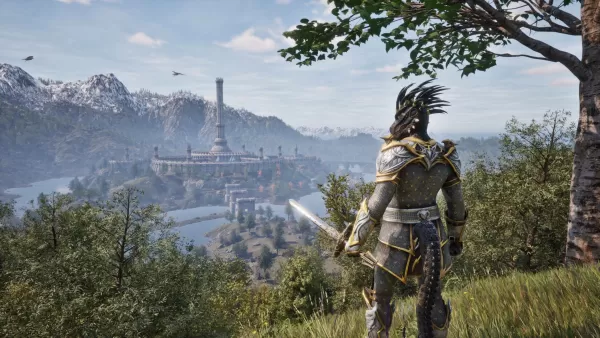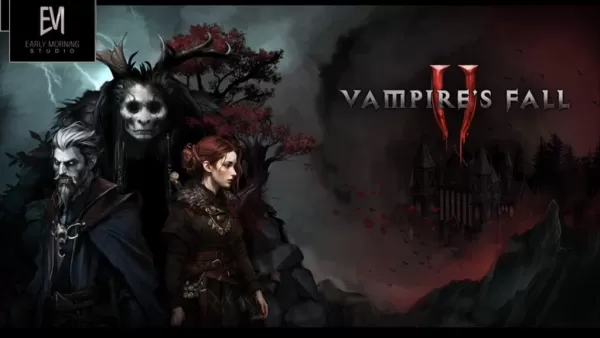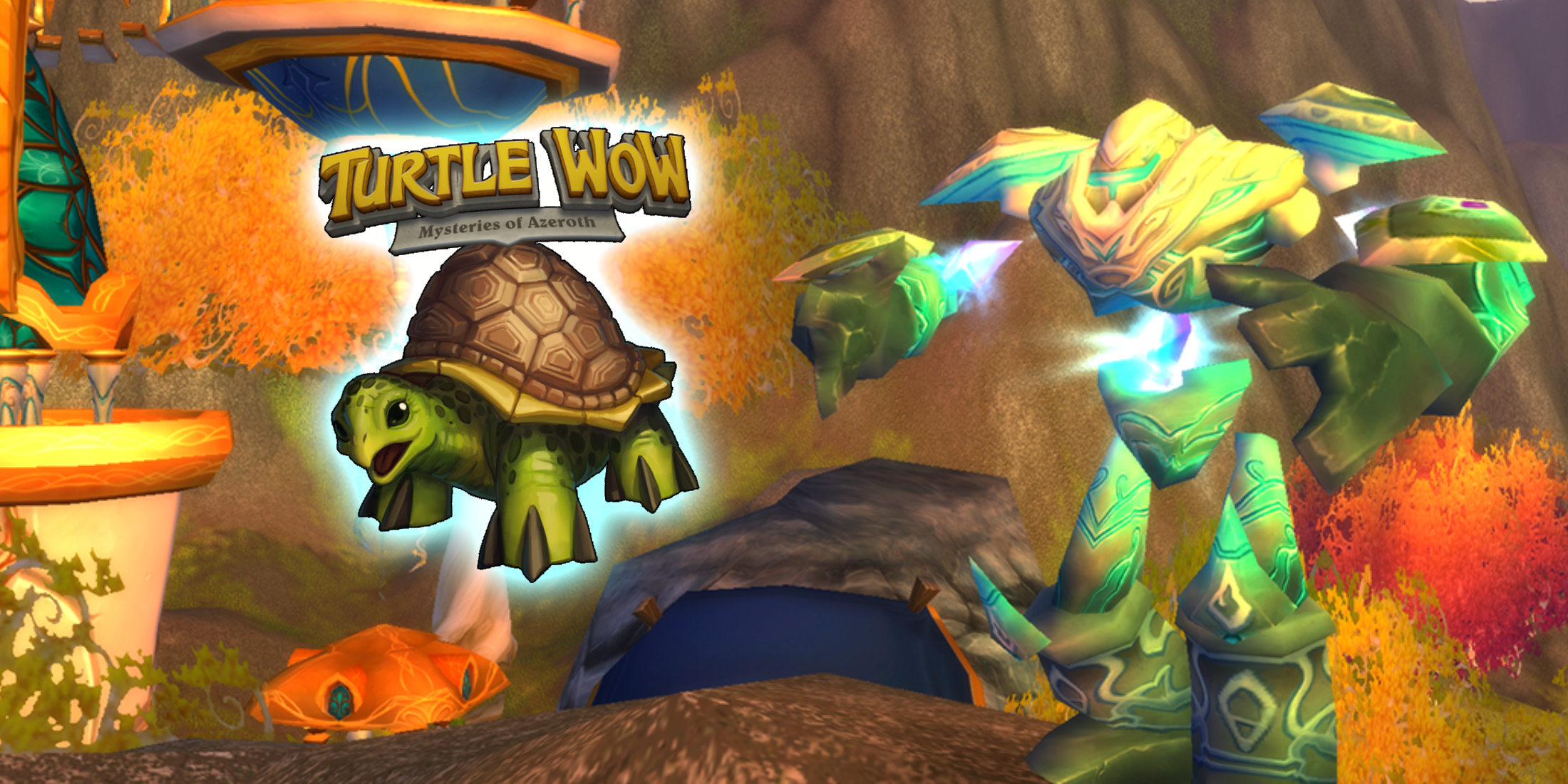"Remakes Key to Bethesda's Revival, Oblivion Shows"
By Azura, by Azura, by Azura – the rumors were true. Yesterday, Bethesda unveiled Virtuos’ remaster (or is it really a remake?) of The Elder Scrolls IV: Oblivion, igniting the internet with excitement. In a surprise move during an 'Elder Scrolls Direct', the game was shadow-dropped, instantly attracting hundreds of thousands of concurrent players. This global celebration arrives as a refreshing change amid the recent challenges Bethesda Game Studios has faced. From managing the fallout of Fallout 76’s troubled launch to the lukewarm reception of Starfield, fans have been questioning whether Bethesda has lost its touch. With fierce competition from RPGs like Baldur’s Gate 3 and The Outer Worlds, Bethesda's next major titles, Elder Scrolls 6 and Fallout 5, are still years away. However, this re-release of Oblivion might just be the step needed to reignite the studio's magic, albeit in an unexpected way.
At its peak, Bethesda Game Studios was synonymous with groundbreaking RPGs. Fallout 4 sold 25 million units by 2020, with over 5 million units sold in its first week alone. Skyrim surpassed 60 million sales by 2023, partly due to its numerous re-releases. In contrast, Starfield has only sold around three million units a year-and-a-half after its launch, even considering Game Pass subscribers and its absence from PlayStation. The game's first expansion, Shattered Space, has also been met with dissatisfaction from its smaller fanbase, highlighting a significant challenge for Bethesda.
With The Elder Scrolls 6 and Fallout 5 still distant prospects, the question remains: how can Bethesda rekindle its relationship with fans? The answer lies in revisiting its storied past.
Rumors of the Elder Scrolls IV: Oblivion remaster surfaced in September 2023, following leaks from Microsoft documents that also hinted at other unannounced Bethesda titles. The buzz grew until January 2025, when a former Virtuos employee leaked more details, sparking debates among fans. Last week, the anticipation culminated in a massive reveal, with over 6.4 million Google searches for ‘The Elder Scrolls VI: Oblivion’ in the last week alone, a 713% increase. Bethesda's reveal livestream peaked at over half a million viewers, and despite the leaks, more than 600,000 tuned in to see the 19-year-old game reintroduced. The fervor for the remaster overwhelmed discount game key websites like CDKeys, while Steam reported 125,000 concurrent players, making it the #1 best seller. The enthusiasm for Oblivion is as intense as the flames of its iconic gates.
The message from players is clear: if you (re)build it, they will come. Engaging fans during long development periods by revisiting classics like Morrowind or the Fallout series makes strategic sense. While Bethesda's main team works on new projects, trusted partners like Virtuos can quickly remaster beloved titles with built-in audiences, attracting both old fans and new players to the worlds of Tamriel and beyond.
Bethesda has previously leveraged its catalogue effectively, as seen when Fallout 4 sales surged over 7,500% in Europe during the first season of the Fallout TV show on Prime Video, accompanied by a timely next-gen update.
 Oblivion Remastered offers a visit to the past that looks like the future. Image credit: Bethesda / Virtuos
Oblivion Remastered offers a visit to the past that looks like the future. Image credit: Bethesda / Virtuos
Looking at Microsoft’s leaked Bethesda roadmap, a Fallout 3 remaster is planned to follow Oblivion in 2026, aligning with the second season of the Fallout TV show. Given the show's focus on New Vegas, there's speculation about a potential New Vegas remake, especially considering the synergy between the show and Fallout 4's aesthetic. Bethesda's surprise drop of Oblivion suggests that a New Vegas Remastered trailer could be waiting at the end of Fallout Season 2's finale.
The message from players is clear: if you (re)build it, they will come. However, if there's one game in Bethesda’s back catalogue that truly deserves a remake, it's The Elder Scrolls III: Morrowind. Fans have long clamored for this, with some even remaking it using Skyrim’s tools. Yet, Morrowind's unique mechanics, from its partial voice acting to its text-based storytelling and lack of quest markers, pose significant challenges. Remaking Morrowind requires a delicate balance to preserve its original charm while updating it for modern audiences.
When a studio becomes an icon in its genre, the challenge is to innovate while retaining its audience. Rockstar Games has managed this with GTA Online, funding the development of GTA 6. Bethesda, known for its expansive single-player worlds, can leverage the success of the Oblivion remaster to reconnect with fans. This approach, if executed with the same care and skill as the Oblivion remaster, could help Bethesda reclaim its throne in the RPG world.
-
Build A Rocket Boy has initiated redundancy procedures following the troubled release of MindsEye, potentially impacting more than 100 employees, according to studio sources speaking with IGN.An anonymous insider revealed that while the exact numberAuthor : Sarah Feb 21,2026
-
Fans of dark fantasy RPGs will likely remember Vampire’s Fall: Origins, which launched back in 2018. Its gothic world of witches, vampires, and militia recruits left a distinct impression. Now, a sequel has arrived: Vampire’s Fall 2 is officially avaAuthor : Aaron Feb 19,2026
-
 Cartoons QuizDownload
Cartoons QuizDownload -
 Siêu hũ Thiên Thai CLUBDownload
Siêu hũ Thiên Thai CLUBDownload -
 4 Фото 1 Слово. Где логика?Download
4 Фото 1 Слово. Где логика?Download -
 Words Crush: Hidden Words!Download
Words Crush: Hidden Words!Download -
 High Neck RunDownload
High Neck RunDownload -
 Game Tổng hợpDownload
Game Tổng hợpDownload -
 Journey to BlissDownload
Journey to BlissDownload -
 Zombie Sniper War 3Download
Zombie Sniper War 3Download -
 Ring of Words: Word FinderDownload
Ring of Words: Word FinderDownload -
 Fishing Online: Classic fish machine, free gameDownload
Fishing Online: Classic fish machine, free gameDownload
- HoYo Fest 2025: Fresh Updates on Comeback
- Mastering Two-Handed Weapons in Elden Ring: A Guide
- Roblox Simulator Codes: Unlock Exclusive Rewards!
- Ultimate Guide to Shinigami Progression in Hollow Era
- Wuthering Waves: Uncover the Secrets of Whisperwind Haven's Palette
- Top 25 Palworld Mods to Enhance Your Game












